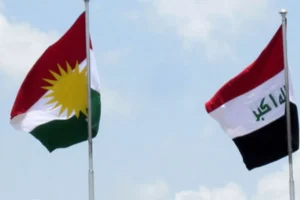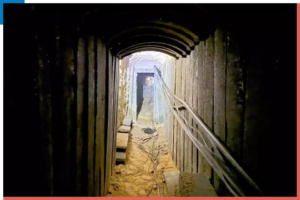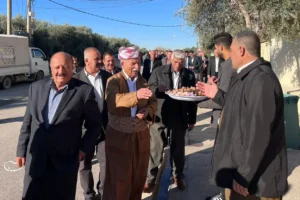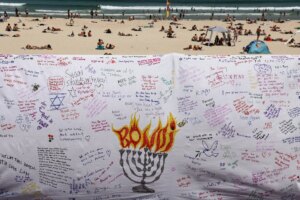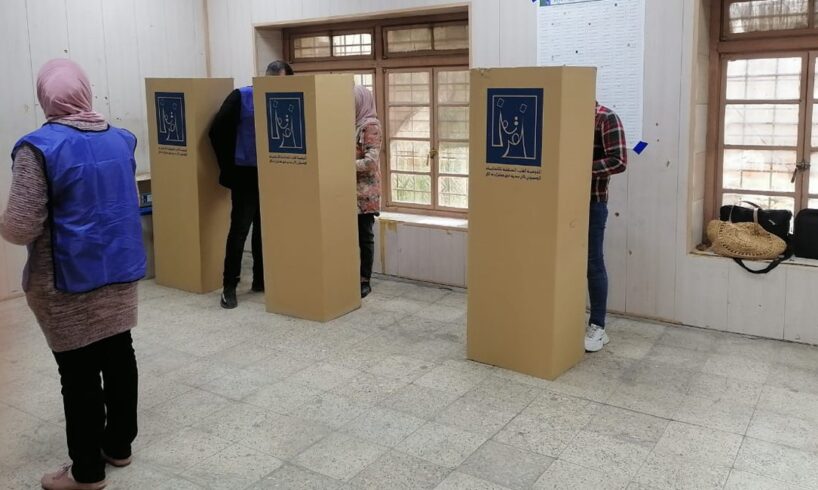
2025-11-04T05:51:50+00:00
font
Enable Reading Mode
A-
A
A+
Shafaq News
Iraq’s upcoming
parliamentary elections on November 11, 2025, are shaping up as a battlefield
of a different kind, where former military officers are trading uniforms for
campaign posters.
They aim to bring
battlefield experience into the halls of legislation, particularly in the
parliamentary Security and Defense Committee. While their presence promises
professional insight into Iraq’s security challenges, it also raises concerns
about the politicization of the military at a pivotal moment in the country’s
history.
Many of these
candidates argue that their military careers give them a unique perspective on
what Iraq’s armed forces and security agencies truly need. Major General Yehia
Rasool al-Zubaidi, running under the State of Law Coalition (Dawlat al-Qanoon)
led by former Prime Minister Nouri al-Maliki, emphasizes that the Committee
requires “military figures who have worked in the field and understand what the
armed forces require in terms of legislation, development, and capacity
building.”
He highlights the
importance of laws covering the Defense Ministry, the Popular Mobilization
Forces (PMF), and the wider security apparatus to ensure that institutions can
protect Iraq’s sovereignty and the rights of service members.
Read more: Iraq’s 2025 Parliamentary Elections — What You Need to Know
The current Iraqi
Electoral Law does not prohibit former military personnel from running for
parliament if they are no longer in active service. This opens the door for
figures like Retired Major General Nouri Ghafil Hamadi al-Dulaimi, representing
the National Resolve Alliance (Al-Hasm Al-Watani) led by Iraq’s Minister of
Defense Thabet al-Abbasi.
Al-Dulaimi frames
political participation as a natural extension of military service. “History
shows that war is an extension of politics by other means, and politics itself
has a parliamentary dimension,” he emphasizes, noting that professional
officers in parliament are necessary to shield security institutions from
political interference. He also cites historical examples, including US
presidents with military backgrounds.
Meanwhile, retired
Colonel Bassam Ali al-Muhayawi, running with the Al-Azm Coalition led by
Muthanna al-Samarrai, underscores how insider knowledge can fill critical gaps.
“A specialist
understands the struggles of the sector he served in and can address its
shortcomings,” he observes, while highlighting past failures in the Defense
Committee’s work on training, service, and retirement reforms.
Speaking to Shafaq News,
security analyst Adnan al-Kanani describes the rise of military candidates as a
“healthy phenomenon,” pointing out that around 14 military officers are running
in Baghdad alone.
“The Iraqi parliament
is meant to reflect all segments of society. The military has sacrificed
greatly and possesses the discipline and experience needed to guide the country
through this difficult period,” he notes, adding that regional experiences,
such as in Egypt, show how military leadership can provide stability in politically
turbulent times.
Yet the expertise
that makes these candidates appealing also carries risks. Strategic expert
Ahmed al-Sharifi warns that Iraq faces “a serious equation where the problem is
no longer the militarization of politics but the politicization of the
military.”
He explains that
partisan quotas and political loyalties have penetrated the command structure,
weakening independence and turning the military into a tool for political ends.
“Buying loyalty with
political money and co-opting officers are among the most dangerous aspects of
the upcoming elections,” al-Sharifi adds, highlighting cross-border financial
flows that signal attempts to influence Iraq’s political decisions, threatening
national interests and undermining democracy.
Read more: Iraq’s 2025 Elections: Revised law reshapes the path to power
The electoral
landscape itself is fiercely competitive. According to the Independent High
Electoral Commission (IHEC), 31 coalitions, 38 parties, and 75 independent
lists are contesting 329 parliamentary seats, with 7,768 candidates distributed
across Iraq’s 18 provinces.
More than 21.4
million Iraqis are eligible to vote—20 million in the general ballot and 1.3
million through special voting for security forces and displaced persons.
Special voting,
scheduled for November 8, is designed for those unable to reach ordinary
polling centers on Election Day, including members of the army, police, PMF,
internally displaced persons living in camps, and eligible inmates.
Overall, the
candidacies of military figures illuminate the tension between experience and
influence, professionalism and politics. For some voters, officers bring
discipline, insight, and a deep understanding of Iraq’s security realities; for
others, their presence raises questions about the independence of institutions
meant to remain apolitical.
Written and edited by
Shafaq News staff.

